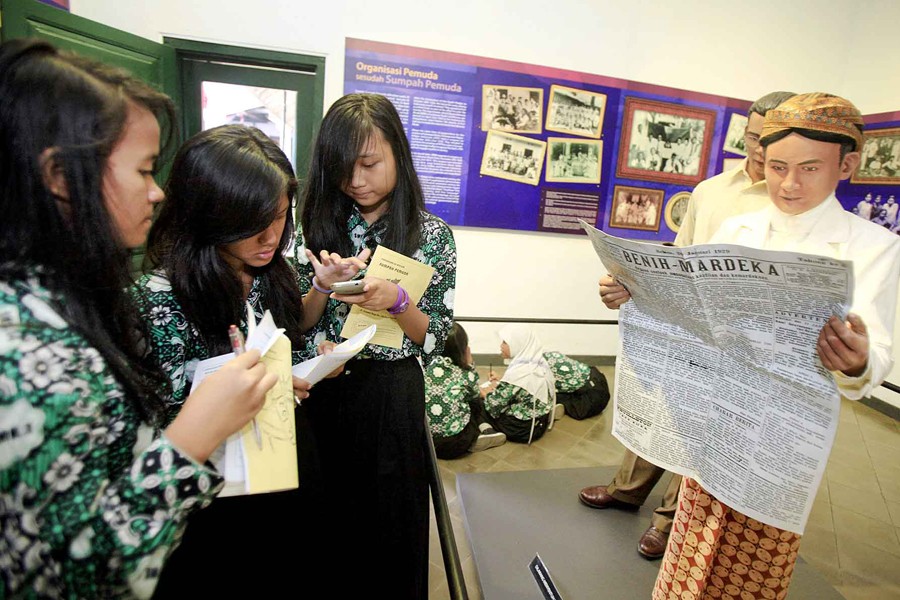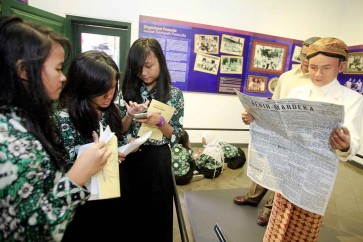Popular Reads
Top Results
Can't find what you're looking for?
View all search resultsPopular Reads
Top Results
Can't find what you're looking for?
View all search resultsYouth pledge and the wisdom of ‘mikul dhuwur, mendhem jero’
The history books in Dutch schools must be so biased that Indonesian views toward colonialism are ignored.
Change text size
Gift Premium Articles
to Anyone
O
n a Friday night in the romantic city of Leiden, relieved from a hectic week, I was making a warm tea in the kitchen when I heard the national anthem, Indonesia Raya, in the background. “It’s coming from TV, isn’t it?” my wife wondered. I walked hastily to the living room to check.
On TV there was a scene of a row of youth standing and singing, “... marilah kita berseru, Indonesia bersatu...” (let’s call out, Indonesia unite), the same melody and lyrics that never fail to move my heart to sing along in any place at any time.
The scene was shot in the Youth Pledge Museum in Jakarta, where the historical Soempah Pemoeda took place 95 years ago from today.
It was remarkable to see it broadcast on a Dutch public channel as part of a new documentary series titled Indonesia roept! (Indonesia calls!). It reminds me of a moment some 15 years ago when a senior Dutch coworker requested that I give a lecture about Indonesia on Oct. 28. When I asked him if he deliberately set the date of the lecture for Oct. 28, he replied, “What is it with the 28th of October?”
I was not surprised by his response, because the history books in Dutch schools must be so biased that Indonesian views toward colonialism are ignored. The dominant view in Dutch society was (and probably still is) that, before the Japanese came, everybody in the archipelago was happy to live in the orderly beautiful Indies, where the colonial ruler had brought only positive developments to the native population.
Even as recent as the 21st century, some prominent Dutch historians were still clinging to the idea that the Indonesian people’s aspiration for independence was only significant after the Japanese came. This idea was upheld by ignoring the facts that since as early as the 1920s the colonial ruler had been exiling national movement figures to remote places in the archipelago.
The new documentary series is unique in that, contrary to the above view, it presents an Indonesian perspective. Throughout eight episodes, it tries to draw a common thread between the moments of the national awakening in the beginning of 1900, through to 1928, 1945 and all the way to 1949, when the Dutch gave up hopes of recolonizing the land they lost in the beginning of World War II.



















